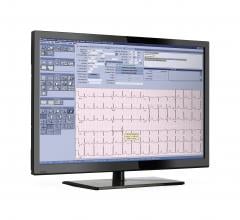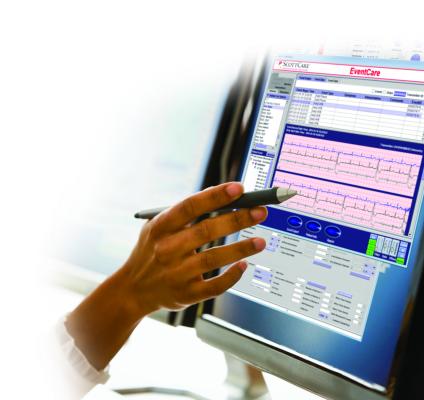
Ambucor Health Solutions provides consultative and contracted ambulatory electrocardiographic and remote device monitoring services for cardiologists and institutions keen on retaining ownership of the clinical services they offer.
Cardiology physician groups and institutions are increasingly being challenged to effectively manage their ambulatory electrocardiography (AECG) and cardiovascular implantable electronic device (CIED) service lines, while the amount of data produced and the requirement for electronic medical record (EMR) integration increases, and reimbursement for the services declines.
Recognizing this challenge, providers are turning to a new approach to managing these services other than the traditional outsourcing of the technical component and associated fees to independent diagnostic testing facilities. Providers also do not want to focus their highly trained allied professionals on nonvalue-added tasks when time would be better directed toward patient interaction and management.
Cardiology administration is recognizing the need for lean resource utilization, comprehensive service provision and shared information through seamless integration of clinical data into its EMR systems. A large multi-location cardiology practice on the East Coast successfully addressed these needs in the following manner.
The Challenge
The practice evaluated its service lines for AECG monitoring and CIED management. These included ambulatory Holter ECG (24-hour to 21-day), ambulatory cardiac event monitoring, ambulatory cardiac telemetry and the remote CIED platform (pacemaker remote and transtelephonic monitoring, implantable cardioverter defibrillator remote, implantable cardiac monitor remote and implantable loop recorder remote).
The practice noted considerable gaps in these service lines including: no tool that comprehensively provided support for the two similar modalities (AECG and CIED), redundancy in labor support needs, partial outsourcing of some of the services to independent labs and no common interface to its extensive EMR.
There was awareness that data management was not optimal and neither was the patient’s clinical benefit. Practice administration recognized that the ambulatory cardiac telemetry service line resulted in financial loss. This was a result of the poor workflow, labor-intensive management required of the physicians and the fact that independent laboratories derived the primary financial benefit of the service line. Their patients were being served; however, physicians did not have the visibility and efficient management of all the underlying clinical data that was necessary to provide the best quality patient care.
Practice leadership felt it was important to completely control all of the service lines that they offered, to manage the patients and their data and to be able to integrate the data and test results fully into the EMR system in which they had invested heavily.
The Solution
The first task was to accept and understand that a qualified arrhythmia center required staffing 24/7/365. The cost, time management, need for employment redundancy and organizational commitment took the practice in a direction it recognized had yet to be accomplished successfully elsewhere (including models in health systems, institutions and practices). In response, it partnered with Ambucor Health Solutions Inc., which provided it with a foundation for a captive “arrhythmia center” and presented the practice with a solution to address the challenges that are inherent in effectively managing a 24/7/365 monitoring program.
After a careful review of each clinical service line, Ambucor worked with the practice to document the workflow and tasks of each line and assign responsibility to a practice healthcare provider. Once the assignment was complete, all common provider responsibilities were compared and reviewed. The practice then partnered with Ambucor to provide highly specialized labor in support of each service line, a strategy known as “insourcing.”
Through insourcing, the practice retained complete ownership, responsibility and control of the clinical services while Ambucor presented options to meet the workflow needs and developed the protocols, policies and implementation tasks that fit directly into the practice’s recognized workflows. Ambucor assisted the practice in defining the AECG and CIED platforms from mission through implementation. Once all policies and procedures were developed, the practice physicians scribed clinical notification and other criteria to be followed and the clinical preparation was complete.
Although Ambucor personnel have experience using all available tools in the marketplace for AECG and CIED service lines, inefficiencies in the disparate diagnostic tools used by the practice quickly became apparent, and ultimately translated into increased operating costs. Ambucor referred the practice to the ScottCare Corp. to evaluate its CardioView Dx product suite. CardioView Dx is a multi-modality tool that can be installed in any user environment from a stand-alone machine/server installation, an enterprise application or presented in a virtual environment.
The cloud environment allows all practice personnel concurrent access for all AECG and CIED management needs. The practice purchased and adopted multiple clinical technologies including HolterCare and the Chroma recorder, the TeleSentry multiple parameter ambulatory telemetry device, and OneView CRM for all forms of CIED management and transtelephonic pacemaker testing.
All of the ScottCare modalities utilize a shared HL7 interface tool for cost-effective EMR integration. Utilizing the Ambucor model and ScottCare technology, labor costs were significantly reduced due to having the appropriate personnel focused on the service lines, utilizing the right technology and implementing efficient clinical workflows.
The Benefit
Ambucor labor, under the supervision of the practice physicians, is provided through a collaborative practice agreement with integrated billing support and multiple redundancies to ensure proper reporting. Each service line is supported by clinical case management with 24/7/365 monitoring for physician notification criteria, followed by documentation of the event, time of data receipt/notification, intervention if available, and the outcome followup if data is available.
Results to date for the practice suggest that 4.4% of all CIED studies performed have met urgent or emergent notification criteria. Of those urgent or emergent studies, 84.2% arrive on a CRM Web portal from 5 p.m. through 7 a.m., with 76% arriving from 11 p.m. through 7 a.m.
The transition to the Ambucor solution was transparent and most of the practice providers did not realize a service line transition until they noted improvement in clinical data, new patient management strategies, the conversion of raw data into meaningful information presented in the EMR and increased patient satisfaction.
The improved clinical results and financial performance resulting from the transition to ScottCare’s CardioView Dx suite and the Ambucor solution were significant. It was a win-win proposition.
The practice was able to effectively improve clinical results and efficiently manage the ambulatory monitoring service lines by employing variable cost resources. It realized a significant increase in remote CIED patient interrogations and improved clinical service by providing 24/7/365 management of these patients, while also expanding their ambulatory telemetry program.
This case study was supplied by Ambucore.

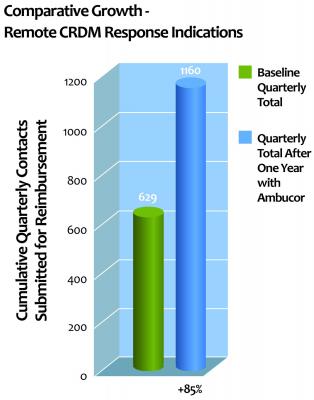
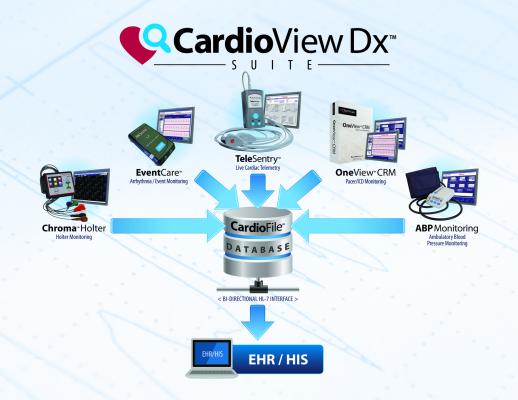
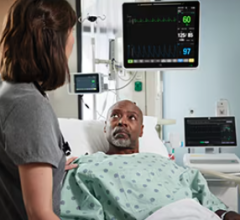
 February 09, 2026
February 09, 2026 


